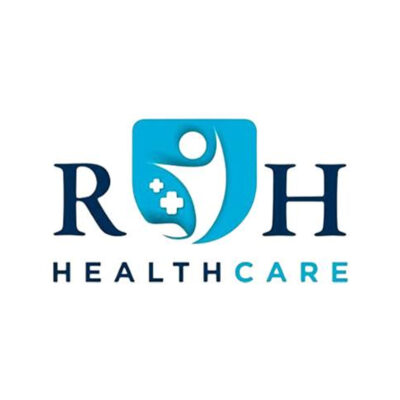5 Tips for Teaching Your Community How to Use Gloves

Using gloves properly is crucial for maintaining hygiene and safety in healthcare, households, and workplaces. Gloves protect us from contaminants, chemicals, and potential infections. This blog provides five tips for teaching your community how to use gloves effectively, including the use of examination hand gloves, surgical hand gloves, shock-proof hand gloves, vinyl hand gloves, and household hand gloves. Products from R H Healthcare can support these practices.
1. Educate on the Importance of Using Gloves
Before teaching the proper use of gloves, it’s important to explain why they are necessary. Gloves act as a barrier, protecting both the wearer and others from germs and chemicals. This is particularly crucial in healthcare settings, where gloves help prevent the spread of infections between healthcare workers and patients. In everyday life, gloves can protect against household chemicals, cleaning agents, and food contaminants.
Organize workshops or community meetings to discuss the benefits of using gloves in different scenarios. Use visual aids and demonstrations to show how gloves can help reduce the risk of infection and contamination.
2. Choose the Right Type of Gloves for the Task
Different tasks require different types of gloves. It’s essential to teach your community how to choose the right gloves based on the activity they are performing:
- Examination Hand Gloves: These are typically used in medical and dental practices. They are disposable and provide a barrier against pathogens. They are usually made of latex, nitrile, or vinyl.
- Surgical Hand Gloves: Used during surgeries, these gloves are sterile to prevent infections and offer a high level of protection. They are often made of latex or nitrile.
- Shock-Proof Hand Gloves: Designed to protect against electrical shocks, these gloves are used by electricians or in environments with electrical equipment.
- Vinyl Hand Gloves: Commonly used in food service and household tasks, vinyl gloves are less expensive and suitable for low-risk activities. They are latex-free, making them a good option for those with latex allergies.
- Household Hand Gloves: Used for cleaning and other household chores, these gloves are made from thicker materials like rubber and protect against harsh chemicals and hot water.
During your educational sessions, provide samples of each type of glove and allow participants to try them on. This hands-on approach helps them understand the texture, fit, and suitability of each glove type for specific tasks.
3. Teach Proper Glove-Wearing Techniques
Knowing how to put on and take off gloves correctly is as important as choosing the right type of gloves. Improper glove use can lead to contamination. Here are some steps to teach:
- Putting On Gloves: Start with clean hands. Hold the glove by the cuff and insert one hand into the glove, being careful not to touch the outside of the glove with your skin. Repeat with the other hand.
- Removing Gloves: Pinch the outside of one glove near the wrist, avoiding contact with your skin. Peel the glove away from your hand, turning it inside out as you do so. Hold the removed glove in the opposite hand. Slide a finger under the cuff of the remaining glove, taking care not to touch the outside surface, and peel it off over the first glove. Dispose of the gloves properly.
Emphasize the importance of hand hygiene before and after using gloves. Even with gloves, handwashing is crucial to prevent the spread of germs.
4. Encourage Safe Disposal of Gloves
Improper disposal of gloves can pose a health risk. Teach your community about the importance of safe disposal practices:
- Disposable Gloves: After use, gloves should be discarded in designated waste containers. They should not be thrown on the ground or in regular trash bins where they can pose a contamination risk.
- Reusable Gloves: Some gloves, like household hand gloves, can be reused. After use, they should be washed thoroughly with soap and water and allowed to dry completely before the next use.
Provide information on local guidelines for the disposal of medical and hazardous waste. Highlight the environmental impact of improperly disposed gloves and encourage responsible disposal practices.
5. Promote Regular Glove Use in Key Areas
Encouraging regular use of gloves in specific areas can help maintain a high level of hygiene and safety. Here’s how you can promote this practice:
- Healthcare Settings: Instruct healthcare workers to use examination and surgical gloves during patient interactions and procedures to prevent cross-contamination.
- Food Service: Encourage the use of vinyl gloves in food preparation and service areas to maintain food hygiene and protect customers.
- Household Tasks: Educate on the use of household gloves for cleaning and handling chemicals to prevent skin irritation and chemical exposure.
- Electrical Work: Ensure that individuals working with electrical equipment understand the necessity of using shock-proof gloves for their safety.
Use posters, brochures, and digital resources to reinforce the message about the importance of wearing gloves regularly in these key areas. Visual reminders can help solidify the practice in everyday routines.
Conclusion
Teaching your community how to use gloves effectively involves educating them on the importance of gloves, choosing the right type for each task, wearing and removing them correctly, disposing of them safely, and encouraging their regular use in key areas. By promoting these practices, you help reduce the risk of infections and contamination, creating a safer and healthier environment for everyone. Whether it’s using examination gloves in healthcare, vinyl gloves in food service, or shock-proof gloves for electrical safety, proper glove use is an essential skill for maintaining hygiene and safety.
R H Healthcare offers a wide range of gloves, including examination hand gloves, surgical hand gloves, shock-proof hand gloves, vinyl hand gloves, and household hand gloves, to support these essential practices in various settings.
